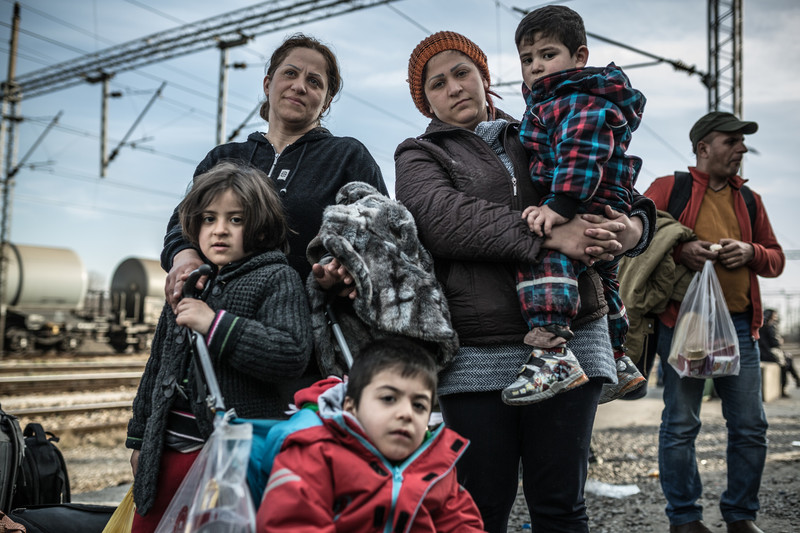Hotline: +381 61 63 84 071
Open letters: Refugee crisis from women’s perspective

Activists of NGO Atina have prepared the comprehensive report on the experiences of women refugees, including their own insights and lessons gained during months of work on providing direct assistance and support to women refugees. Since the beginning of work on the ground in the summer of 2015, NGO Atina’s mobile teams were in contact with, and provided assistance to, more than 35,000 women and 7000 children.
"I left my injured country to meet with my husband who went to save himself from the war and he was killed. I left with my children, but I saw the worst of the world. I crossed that hungry sea that was thirsty for the bodies of children and women from Syria, only to reach the land that was kingdom of famine, and another state where death lurks at every step. I lived out in the open, where it was cold, and where I had nothing to warm my children with. We waited for more than three months for them to open the borders, to reach that country without any life conditions."
– Amira wrote in her open letter, a woman from Syria who went on the journey with her six children, youngest of whom, a three-year-old Iman, still has pieces of shrapnel in her leg.
Through the activity “Open letters”, organised by NGO Atina and supported by UN WOMEN and Oxfam Italy, a total of 74 women refugees (33 Syrians, 14 Iraqi and 27 Afghan woman and girls from 16 to 45 years old) conveyed the stories of life experiences in their countries of origin, the status of women, their rights, difficulties and risks they were facing during their journey to Europe.
This activity was one of many aimed at women refugees and asylum seekers that NGO Atina conducted from the moment of border closures, when thousands of women were stranded in the transit reception centres, asylum centres and near the border crossings, in order to empower them and provide assistance to those who have been recognised as the most vulnerable and exposed to greatest risks. Involved in direct work and assistance, we learned a lot about their culture, customs, tradition, the status of women, their rights, gender roles, daily routines, suffering, pain, bitter everyday life, and the difficulties they faced in the country of origin and during their journey.
Experience in work with individual cases showed that women refugees are at increased risk due to inadequate humanitarian and political responses that require urgent and comprehensive reform. The lack of basic services, clear information, lack of sensitised and trained service providers in emergency situations, lack of gender sensitivity, risks of smuggling and exploitation are just some of the challenges women refugees faced in the countries of transit. Learning about that, we realised how important it is for us to understand what they are going through in order to help them feel free and relaxed. Open letter activity was one of the techiques we used to reach that goal.
Entire report could be downloaded here.
Report was prepared by Zorana Parezanović and Jelena Hrnjak.












 FACEBOOK
FACEBOOK TWITTER
TWITTER YOUTUBE
YOUTUBE